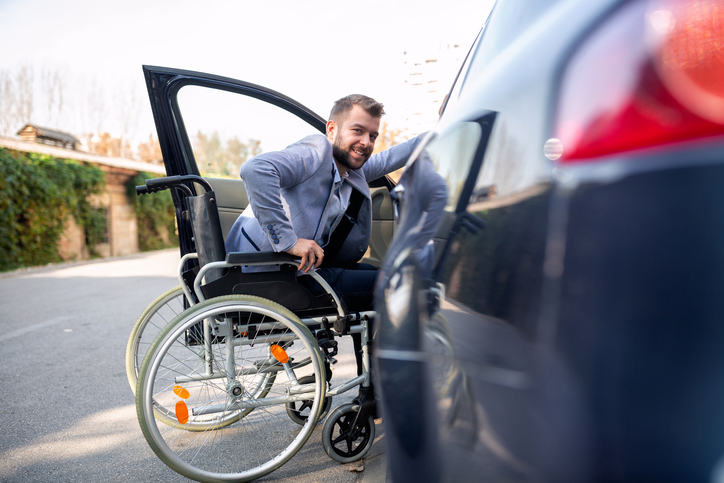
Living with a spinal cord injury (SCI) can be tough. Everyday tasks that once felt simple now require extra effort, adjustments, or support. But that doesn’t mean your independence and quality of life have to be compromised. With the right strategies, you can overcome daily mobility challenges, and still lead a fulfilling life!
At Eximius Support, we know how important it is to have the right care and encouragement. This article explores common mobility challenges spinal injury patients face and practical ways to overcome them.
Understanding Spinal Cord Injuries and Their Impact on Mobility
A spinal cord injury can change how a person moves and controls their muscles. The effects depend on the location and seriousness of the injury.
Complete vs. Incomplete Injuries: This type of injury results in total loss of movement and sensation below the affected area, while an incomplete injury may allow for partial function and sensation.
Levels of Impact: Injuries higher up on the spine can affect all four limbs (quadriplegia), while injuries lower down may affect only the legs (paraplegia).
Road accidents, falls, medical conditions, and sports injuries are the most common causes of spinal cord injuries.
Common Mobility Challenges for Spinal Injury Patients
Spinal cord injuries bring different mobility challenges to different people. Understanding them is the first step toward finding ways to manage them. Here are some of the most common ones:
1. Limited Lower Limb Function
Having weakness or paralysis in your legs can make standing and walking difficult. Everyday activities like getting in and out of bed, using the bathroom, or moving around at home require adjustments and extra support.
2. Muscle Weakness and Spasms
Nerve damage can lead to muscle weakness or unexpected spasms, which makes movement unpredictable. Stiffness can also reduce flexibility and balance. Stretching, physical therapy, and an individually tailored exercise programme can help manage these symptoms.
3. Balance and Coordination Issues
Simple manoeuvres, like standing up, sitting down, or moving from one position to another, can be tricky. This increases the risk of falls. Handy tools such as supportive seating or grab bars, as well as assistance from carers, can provide stability and reassurance.
4. Using a Wheelchair
Using a wheelchair brings freedom, but it also comes with difficulties. There will always be unexpected uneven surfaces and narrow doorways to navigate, and stairs can make movement difficult. Choosing the right wheelchair and making small changes at home can help improve accessibility and comfort.
5. Pain and Discomfort
Chronic pain, nerve pain, and pressure sores are common and can make moving around even harder. These can be managed with better positioning, specialised cushions, and regular movement to help ease discomfort.
Assistive Devices and Mobility Aids for Spinal Injury Patients
Thankfully, there are so many devices designed to make movement easier and safer:
Wheelchairs: Manual and powered options can give you independence and comfort.
Braces and Orthotics: These help with standing and walking, especially for those with partial leg function.
Walkers and Canes: If some mobility is retained, these aids add stability.
Exoskeletons and Robotics: This cutting-edge technology is helping some patients regain movement through wearable robotic devices. Amazing, right?
Physical Therapy and Rehabilitation
Rehabilitation is such an important part of improving mobility and confidence. A personalised therapy plan may include:
Strength and Flexibility Training: These include exercises that help maintain muscle tone and improve movement.
Occupational Therapy: Teaches you new ways to carry out daily tasks like dressing, eating, and personal care.
Hydrotherapy: Water-based exercises that ease movement without putting stress on the body.
Adaptive Sports and Activities: Engaging in modified physical activities boosts confidence and mobility.
How Live-In Care Supports Spinal Injury Patients
A spinal injury is life-changing, and mobility challenges can be frustrating, but they don’t have to take away independence or happiness. With the right care and support, life can still be rich and fulfilling. For those living with spinal injuries, professional live-in care can make a big difference. At Eximius Support, our carers provide personalised assistance and companionship to help you live a fulfilling, independent life.
If you or a loved one needs support, reach out to us today to see how we can help create a safer, more independent life.
Further reading:
Supporting our clients with spinal injury
Spinal Injuries: Complete vs Incomplete
Supporting Our Clients With a Spinal Injury
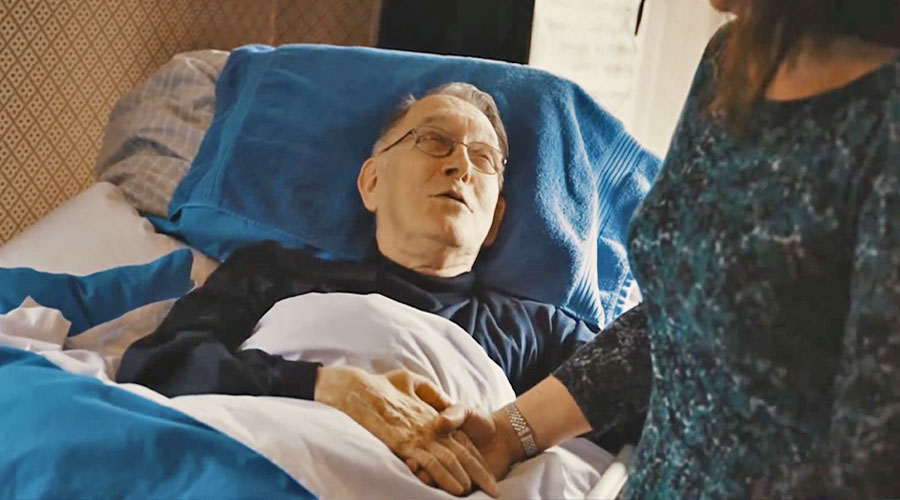
After a hospital stay, whether planned or unexpected, most people long to return home. However, without the right care and support on hand this might not always be possible. They need home from hospital care.
This is where Eximius comes in. We provide long or short-term care , to make the journey to recovery that little bit easier. This type of care is traditionally a one-off arrangement aimed at supporting an individual following their release from hospital.
With a qualified, trained carer on hand, many patients can be discharged from hospital earlier enabling them to return home sooner.
Health benefits home from hospital care
Being back in the comfort of their own home, surrounded by their loved ones, can have a hugely positive effect on an individual’s wellbeing, health and quality of life.
Evidence has shown that, given the choice, 97% of people would want to stay in their own home to receive the care they need. Eximius provides outstanding long or short-term live-in carers to allow this to happen.
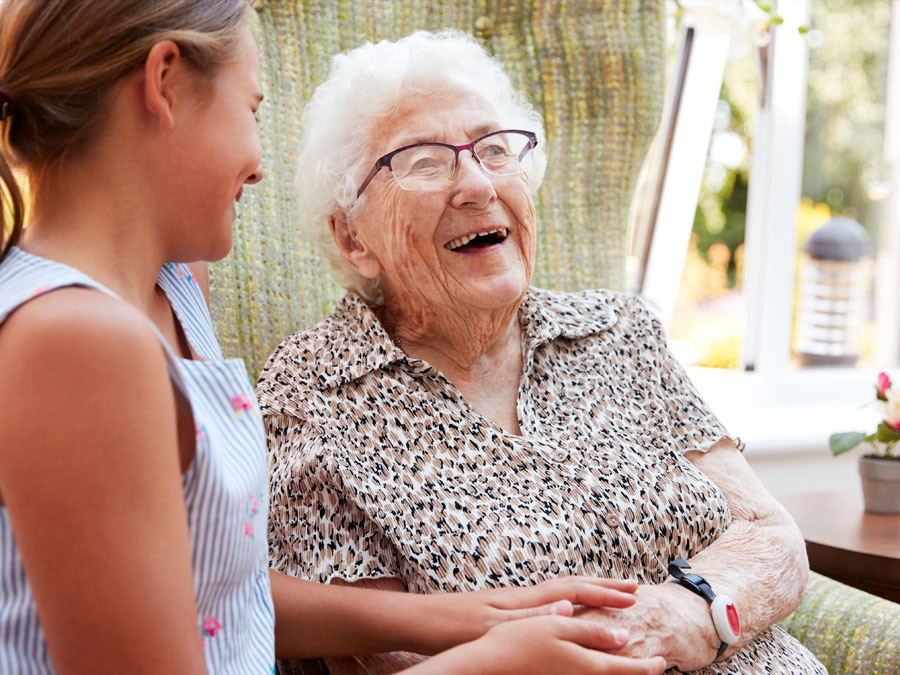
Once home, our companions play a vital role in ensuring clients carry out exercise and rehabilitation. Activity is the best way to keep a client’s body healthy, improve mental health and avoid complications once they’re home from hospital. Research has demonstrated the benefits of activity in maintaining health and function, as well as recovery.
A person may need to relearn basic skills, such as walking or talking and our companions ensure this daily rehabilitation takes place during the home from hospital care service.
They can also:
- Manage and administer medications – our live-in carers are fully trained and qualified in the administration of medication
- Assist with personal hygiene, supporting clients with appearance, dressing and grooming
- Help people stay socially active and stimulated, keeping in touch with friends and enabling them to continue attending activities they enjoy and love
- Clean the house to ensure a safe and tidy environment
- Looking after a much-loved pet(s)
- Food shopping and assisting with cooking healthy, well-balanced meals based on clients’ personal desires and preferences

What is post hospital recovery care?
Following a period of illness, surgery, or unexpected situation, Eximius can provide short term care to make the journey of recovery a little easier. For the majority short term care is a one-off care arrangement to support an individual post hospital release.
Often this can mean that an individual can leave hospital earlier, if medical professionals are aware that the patient is being looked after by a qualified trained carer.
As a result, a patient can get back to the comfort of their own home, surrounded by their loved ones. This can have a positive effect on an individual’s well-being, health, and quality of life. Evidence has shown that 97% of people given the choice would want to stay in their own home to receive the care they need. Eximius provide outstanding short term live-in carers to allow this to happen.
On occasions short term live-in care is required urgently following an unexpected situation. Often family members can become overwhelmed with organising urgent care for a loved one, as well as continuing to carry out day to day living.
Eximius can help take the pressure of by arranging it all, allowing family members to continue emotionally supporting their loved ones. If urgent care is required, care managers can often visit a home within 24 hours to access the house, understand more about the individuals needs and establish a relationship with the family. Available carer profiles can then be sent over to family members for them to select the best suited. This allows choice and allows family members to still feel in control.
How our companions can help during short-term care
Managing and administering medications
All companions at Eximius are fully trained and qualified in the administration of medication. We ensure that companions understand and aware of client’s medication usage before they go into placement. This helps ensure a smooth and accurate handover.
Additionally, companions are required to document the administration of medication on a secure care electronic system. This helps companions monitor intake and let a clients family know that their loved one is being looked after. This can be extremely reassuring. Companions will also ensure that repeat prescriptions are made and will collect medication from the pharmacy. This takes all pressure of the client’s family and helps a family carer relax and rest of their break.
Personal care
Companions at Eximius can help assist clients with personal hygiene. We understand that this can be a sensitive matter and ensure that the client’s dignity is respected whilst helping with personal care. Additionally, companions can help with assisted care such as supporting clients with appearance, dressing and grooming.
Help them stay socially active
Our companions can help keep clients stimulated by ensuring they keep in touch with friends, remain active and attend activities they enjoy and love. This is good for a client’s confidence, mental wellbeing and helps ensure they remain connected to the local community. Companions can also escort clients on daytrips helping ensure that our clients experience a quality life that they deserve.
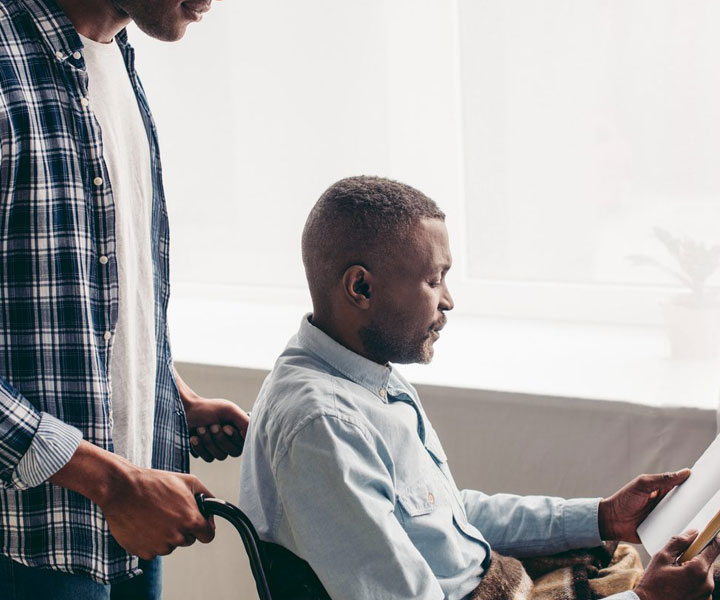
Additionally, companion’s at Eximius can play a vital role in ensuring clients carry out exercise and rehabilitation. Activity is the best way to keep a client’s body healthy, improve mental health and to avoid complications. Research has demonstrated the benefits of activity in maintaining health and function as well as recovery. They may need to relearn basic skills, such as walking or talking. Companion’s can ensure that daily rehabilitation takes place during short-term care.
Help with domestic tasks
Companions at Eximius are required to keep a client’s house clean. All rooms are regularly cleaned and vacuumed ensuring that the upkeep of the house is kept to a high standard. This can be reassuring to a client’s family knowing that there relative is in a safe and tidy environment.
Help care for the client’s much-loved pet
Companions at Eximius will happily support looking after client’s pets by feeding them and taking them on regular walks.
Eating and drinking
At Eximius companions help with the client’s food shopping and cook healthy well-balanced meals. Meal’s choices can be prepared based on the client’s desires and preferences. This ensures that the client regularly eats/drinks and receives essential vitamins. This is important in remaining healthy and keeping their immune systems strong helpful in fighting illness. Each companion is provided with an Eximius recipe book when going into a placement. The recipe book is filled with tasty healthy meals helpful in ensuring clients receive a range of delicious meals.
Companionship
Companions at Eximius can provide excellent emotional support and assistance during short-term live-in care. Our companions are carefully selected by our recruitment manager, ensuring that all companions employed by the company are of an outstanding care standard. Companions are perfectly matched to a client to ensure they share similar interests and hobbies. This enables a client to continue living an interesting and stimulating life.
Reasons to choose Eximius
Speed
We can put care in place very quickly. While it is better to have more time, sometimes people return home and suddenly realise they need more help than they thought or would rather not be on their own. We can put care in place within 24 hours and have been known to organise it in a little as 6!
Flexibly
Often people don’t know what they need and how long they’ll need it for. Because we are small, we can make quick decisions and change things as and when is needed.
Choosing the correct care is an important decision and our experienced team are here to help every step of the way. Please do not hesitate to contact us, we are more than happy to help.
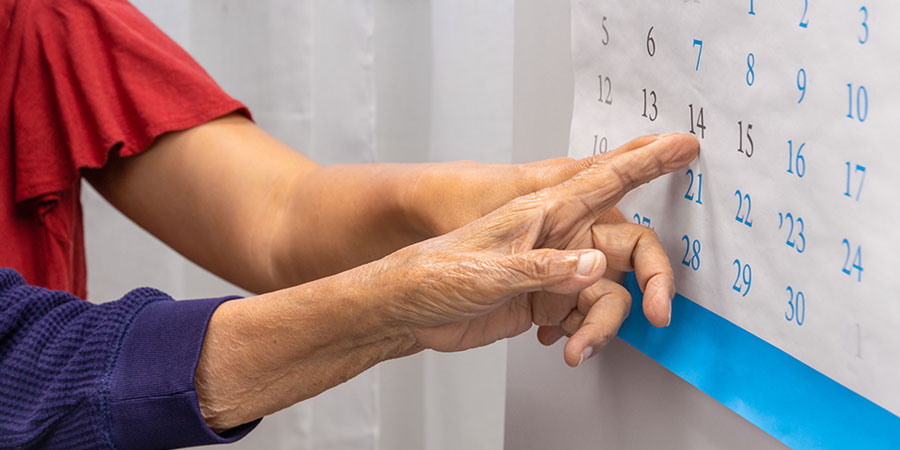
What is Dementia?
Dementia is a syndrome (a group of related symptoms) associated with an ongoing decline of brain functioning. There are many different causes of dementia, and many different types. People often get confused about the difference between Alzheimer ’s disease and dementia. Alzheimer’s disease is a type of dementia and, together with vascular dementia, makes up the majority of cases.
Symptoms of dementia include problems with memory loss, thinking speed, mood, understanding, movement, language, and judgement.
- Research shows there are more than 850,000 people in the UK who have dementia. This is set to rise to over one million by 2025
- 9,600 will develop dementia this year, that’s one every three minutes
- One in 14 people over the age of 65 have dementia
- The condition affects 1 in 6 people over 80
In the early stages of dementia, many people are able to enjoy life in the same way they did prior to their diagnosis. But as symptoms get worse, the person may feel anxious, stressed, and scared at not being able to remember things, follow conversations or concentrate.
This can be distressing for both the person with dementia and their family surrounding them. It is also exhausting for the person caring for that individual.
It can change their relationship and mean they are unable to cope with their own emotional and physical needs.
How our companions can help
At Eximius we provide exceptional live- in support for those diagnosed with Dementia. All our companions are fully trained and qualified with Dementia care. Our companions are aware of the importance of supporting those with Dementia to maintain skills, abilities, and an active social life. This is crucial in helping how they feel about themselves, helping reduce behaviours that are out of character and reassure family members that their loved ones are being looked after.
Eating and drinking
Those with Dementia may not drink and eat enough as they do not realise that they are thirsty and hungry. This can put them as risk of:
- Urinary tract infections (UTIs)
- Constipation
- Headaches
- Loss of weight
This can lead to increased confusion and make the symptoms of dementia worse. At Eximius companions help with the client’s food shopping and cook healthy well-balanced meals. Meal’s choices can be prepared based on the client’s desires and preferences. This ensures that the client regularly eats/drinks and receives essential vitamins. This is important in remaining healthy and keeping their immune systems strong helpful in fighting illness.
Helping with incontinence and using the toilet
People with dementia may often experience problems with going to the toilet. Both urinary incontinence and bowel incontinence can be difficult to deal with. It can be very upsetting and uncomfortable for the person with dementia.
Problems can be caused by:
- Urinary tract infections (UTIs)
- Constipation, which can cause added pressure on the bladder
- Some medicines
Sometimes the person with dementia may simply forget they need the toilet or where the toilet is. Companions at Eximius can:
- Look for signs that their client may need the toilet such as fidgeting or standing up or down
- Keep the client active by taking them on daily walks. This can help with regular bowel movement and prevention of urinary tract infections
- Make the client go to the toilet as part of their regular daily routines
- Place signs and pictures on the toilet door to help remind clients
Help with personal care
Some people with dementia can become anxious about personal hygiene, forget, and may need help with washing. Washing is a personal, private activity. Companions at Eximius understand that this can be a sensitive matter and ensure the person’s dignity is respected whilst assisting with personal care.
Help with sleep problems
Dementia can affect people’s sleep patterns and cause problems with a person’s “body clock”. People with dementia may get up repeatedly during the night and be disorientated when they do so. This can be dangerous if there is no one to comfort the individual and assist them back to bed. At Eximius we can provide live-in night care. Companions remain awake throughout the night and regularly check the client is safe.
Help cope with distress
When a person with dementia becomes distressed, it is often because they are trying to communicate something to you. If a person with dementia does start to become upset, our companions can help them feel calmer by comforting them, for example giving them a hug, playing music they love, sitting and holder their hand, offering them a cup of tea, provide reassure and helping the client find the answer themselves.
Help them stay socially active
Our companions can help keep dementia clients stimulated by ensuring they keep in touch with friends, remain active and attend activities they enjoy and love such to dance lessons, swimming classes, art lessons. This is good for a client’s confidence and mental wellbeing. According to ‘DailyCaring’ home dementia exercise programmes help increase abilities and improve symptoms of Dementia. They improve cognitive function, reduce depression, improve balance and improve ability to perform everyday tasks.
Companions can also escort clients on daytrips to museums and concerts and on holiday. This helps ensure that our clients experience a quality life that they deserve.
Help with domestic tasks
Companions at Eximius are required to keep a client’s house clean. All rooms are regularly cleaned and vacuumed ensuring that the upkeep of the house is kept to a high standard. This can be reassuring to a client’s family knowing that there relative is a safe and tidy environment.
Help care for the client’s much-loved pet
Companions at Eximius will happily support looking after client’s pets by feeding them and taking them on regular walks.
Reasons to choose Eximius
Consistency
We believe in keeping the same carer in place for as long as possible. This means less anxiety for the person with dementia and that the carer can learn a clients likes and dislikes and what might trigger an adverse reaction.
Dementia specific Support
Our GP Dr Bashir is an expert in elderly care and in Dementia. Our clinical lead Claire dancer is a specialist in mental health and addiction. Between the 2 of them they offer a wealth of knowledge and support to clients and family members struggling with the impact of dementia.
Carers training
All our carers are trained in dementia and many of them have extensive experience in different types of dementia, including Alzheimer’s, vascular, Lewy bodies and Korsakoff.
Choosing the correct care is an important decision and our experienced team are here to help every step of the way. Please do not hesitate to contact us, we are more than happy to help.

What is respite care?
Although for the majority a family carer’s main concern is to look after their loved one, at Eximius we understand how emotionally and physically demanding this can be. It is important that family carer’s take time out to look after themselves. This is crucial in preventing them becoming exhausted and run down. Respite care provides family carer’s the opportunity to do this.
Eximius can provide outstanding, professional carers for a short period of time. This allows a family carer to take a break and ensures that a client can continue being cared for in the comfort and familiarity of their own home.
In many cases family carers can be hesitate about taking up this type of care as they believe it is a sign of weakness or acknowledgment that they cannot cope. However, Eximius do not see it like this. We see it as an opportunity for family carers to refuel, prevent the breakdown of a relationship and come back being the best carer possible.
Companions at Eximius go above and beyond to ensure a client is satisfied and supported whilst family carers take a break. This ensures that family members can relax, rest, and feel assured during their break knowing their love one is receiving the highest quality care.
Furthermore, respite care can provide a trial run/opportunity for families to try live-in care for the first time. It provides families with further understanding of how live-in care works, whether a client enjoys having a carer in their house and can help emphasis to families the benefits of live-in care for both the client and the family carer.
How our companions can help during respite care
Managing and administering medications
All companions at Eximius are fully trained and qualified in the administration of medication. We ensure that companions understand and aware of client’s medication usage before they go into placement. This helps ensure a smooth and accurate handover. Additionally, companions are required to document the administration of medication on a secure care electronic system. This helps companions monitor intake and let a clients family know that their loved one is being looked after. This can be extremely reassuring. Companions will also ensure that repeat prescriptions are made and will collect medication from the pharmacy. This takes all pressure of the client’s family and helps a family carer relax and rest of their break.
Personal care
Companions are Eximius can help assist clients with personal hygiene. We understand that this can be a sensitive matter and ensure that the client’s dignity is respected whilst helping with personal care. Additionally companions can help with assisted care such as supporting clients with appearance, dressing and grooming.
Help them stay socially active
Our companions can help keep clients stimulated by ensuring they keep in touch with friends, remain active and attend activities they enjoy and love. This is good for a client’s confidence, mental wellbeing and helps ensure they remain connected to the local community. Companions can also escort clients on daytrips to museums, concerts and on holiday. This helps ensure that our clients experience a quality life that they deserve.
Additionally, companion’s at Eximius can play a vital role in ensuring clients carry out exercise and rehabilitation. Activity is the best way to keep a client’s body healthy, improve mental health and to avoid complications. Research has demonstrated the benefits of activity in maintaining health and function as well as recovery. They may need to relearn basic skills, such as walking or talking. Companion’s can ensure that daily rehabilitation takes place whilst family carers take a break.

Help with domestic tasks
Companions at Eximius are required to keep a client’s house clean. All rooms are regularly cleaned and vacuumed ensuring that the upkeep of the house is kept to a high standard. This can be reassuring to a client’s family knowing that there relative is in a safe and tidy environment.
Help care for the client’s much-loved pet
Companions at Eximius will happily support looking after client’s pets by feeding them and taking them on regular walks.
Eating and drinking
At Eximius companions help with the client’s food shopping and cook healthy well-balanced meals. Meal’s choices can be prepared based on the client’s desires and preferences. This ensures that the client regularly eats/drinks and receives essential vitamins. This is important in remaining healthy and keeping their immune systems strong helpful in fighting illness. Each companion is provided with an Eximius recipe book when going into a placement. The recipe book is filled with tasty healthy meals helpful in ensuring clients receive a range of delicious meals.
Companionship
Companions at Eximius can provide excellent emotional support and assistance during a family carers break. Our companions are carefully selected by our recruitment manager, ensuring that all companions employed by the company are of an outstanding care standard. Companions are perfectly matched to a client to ensure they share similar interests and hobbies. This enables a client to continue living an interesting and stimulating life.
Reasons to choose Eximius
Flexibility
As we are a small we able to move quickly and put carers in place for short-term cover. We can always adapt should plans change at short notice.
Companionship
All our carers are cheery and friendly and will make sure your loved one is looked after while you’re away taking a break. You can then return fully rested knowing they’ve been well cared for.
Choosing the correct care is an important decision and our experienced team are here to help every step of the way. Please do not hesitate to contact us, we are more than happy to help.
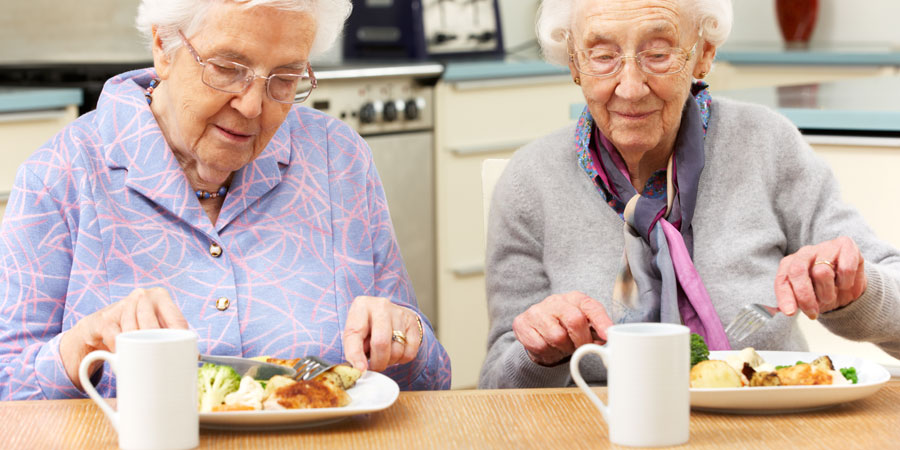
It’s always important to eat well. But it’s even more important that we eat well as we age to promote a long and healthy life.
Food is our fuel. Eating the correct food allows the body to perform at its best, fight ageing, fight disease and boost immunity.
We all know that eating the right food promotes health and wellness by giving us all the vitamins and minerals needed to function effectively. However, eating the wrong foods can cause our bodies unnecessary stress.
As we age, we need fewer calories, but still need lots of nutrients. However, appetites wane as we get older. You may notice a change in your sense of smell and taste which may cause food to seem bland and less enjoyable.
Weight gain and weight loss can become a problem with age
Older adults may become underweight due to:
- Reduced appetite
- Reduced ability to shop regularly for fresh and nutritious foods
- Reduced ability to cook
Older adults may become overweight due to:
- More reliance on convenience and processed foods
- Increased sugar intake (from convenience foods)
- Reduced movement and exercise
So how do you eat well as you age? Here are some tips to get you started.
Eating well as you age
The Eatwell Guide shows the different types of foods and drinks we should consume – from which food groups and in what proportions – to have a healthy, balanced diet.
- Ideally, eat at least 5 portions of a variety of fruit and vegetables every day.
- Base each meal on a source of carbohydrate such as potatoes, bread, rice, pasta or other starchy foods and choose wholegrain varieties where possible.
- Choose some dairy or dairy alternatives (such as soya drinks) each day, choosing low fat and low sugar options where possible.
- Include some protein each day. This can be in the form of beans, pulses, fish, eggs, meat and other proteins (2 portions of fish every week, one of which should be oily, e.g. tuna, mackerel, pilchards).
- Choose unsaturated oils and spreads and eat in small amounts.
- Drink 6-8 cups/glasses of fluid a day.
If you are regularly consuming food and drinks high in fat, salt, or sugar then it’s a good idea to try and have these less often and in small amounts (ideally very rarely).
Sugar, fat and salt
Diets that are high in sugar, fat and salt have been linked to common health conditions such as heart disease, cancer, high blood pressure, stroke, obesity and tooth decay. Unfortunately, many of the processed convenience foods, ready meals and savoury snacks can be high in sugar, fat, and salt.
Eating too much salt can increase your risk of high blood pressure and stroke. So, look for low-salt versions of foods where you can. Also, try adding salt to your food at the table rather than when you cook. Often, less salt is consumed when added at the end.
Foods that are high in saturated fat such as cakes, sausages, and cheese, increase cholesterol levels in the blood and raise your risk of heart disease and stroke. These are often everyday food items but should in fact only be eaten very occasionally.
Tips for people who don’t enjoy eating as much as they’ve got older
- If food tastes bland, try adding some stronger flavours. Sweetener, ginger, garlic, chilli, herbs and fresh lemon or lime, all add flavour without adding salt or sugar.
- Don’t get hung up on certain meals at certain mealtimes. If you want breakfast for dinner, or vice versa, go with it!
- Try eating smaller meals more regularly if a large plate feels too much in one sitting.
- When you cook, make bigger batches, and freeze some so you’ve always got a meal ready to heat up on days you don’t feel like cooking.
- Calorie packed smoothies and finger foods are also good for smaller appetites.
Good nutrition as you age is very important to help you stay as healthy as possible. While tastes and appetites can change, it’s essential to try and consume a range of food from all food groups. In addition to this, reducing the amount of sugar, fat and high salt processed foods, can improve health as we age.

As people age, their world can become smaller and often more lonely. Loved ones may have moved away or even passed away.
As people age and go out less often, pets become part of the family and provide much-needed loving companionship. They can bring joy to your everyday life, no matter your age. Here we will look at the benefits of pets for the elderly and which pets are best for older adults.
What are the benefits of keeping pets for the elderly
The Pets For The Elderly Foundation is a charity connecting therapy animals with older adults. Here are some proven benefits of pets for the elderly taken from research the Foundation has collected.
Physical Benefits
Heart Health — Spending time regularly with a pet can lower blood pressure and cholesterol and therefore decrease the risk of cardiovascular disease.
Improved Activity — Walking, grooming or playing with a pet frequently increases the time spent doing physical activity and exercise, which in turn has countless health benefits.
Healthy Behaviour — Pet owners tend to take better care of themselves in general. Caring for a pet helps to develop a routine which encourages owners to maintain better routines to eat regularly or complete chores and other tasks.
Social & Emotional Benefits
Increased Interaction — Walking a dog gets older adults out of the house and increases their opportunities to socialise with neighbours, friends, family or strangers in the park.
Decreased Loneliness — Pets provide companionship, giving older adults a source of love, affection, conversation and activity.
Stress Relief — Being with a pet increases levels of the “feel good” hormone, serotonin, which relieves stress. It also provides physical touch contact, which helps to calm anxiety as well as many other benefits.
Better Self-Esteem — It can be hard coming to terms with getting older and the limitations it can bring with it. Pets are a welcome reminder to older adults that they are still loved and needed.
Sense of Purpose — Owning an animal gives someone a reason to get up in the morning. Pets combat depression symptoms by eliminating feelings of worthlessness or helplessness. Knowing they are loved and needed enhances an older person’s mental health.
Memory– Pet ownership is also thought to help preserve memory and thinking according to research presented at the American Academy of Neurology’s 74th Annual Meeting.
They found that long-term pet ownership is linked to lower levels of memory and thinking decline in those over the age of 50 compared to those who did not have a companion animal.
What is the best pet for an older person?
Cats
Cats can be just as friendly and loveable as dogs but need less looking after. Generally, they are low maintenance and live more independently than dogs. Of course, this also depends on the breed and age of the cat. Kittens will have more energy and may require extra time and attention compared to an older cat. The personality of the cat should also be taken into consideration where possible, especially if adopting an older cat. The breed of the cat will also affect how much care it will need. For example, some pedigree cats need a lot of grooming.
Dogs
Dogs are considered to be one of the best pets for older people. Owning a dog requires care and attention to be given every day. This can give older adults a purpose and a focus each day, especially for those who struggle to give up a busy lifestyle. Walking a dog twice daily provides an elderly person with a reason to get up and out of the house for some fresh air and exercise. Dogs are also a great conversation starter to get an elderly person socialising with people they meet. Very often dog owners will know the names of all the dogs they meet but not the names of the human owners they chat to daily!
Again, it’s important to take the breed of dog into consideration before deciding. Size, temperament and energy levels can vary greatly and all impact the care needs of the dog.
Bunnies, guinea pigs, hamsters, gerbils
If cats and dogs are not suitable, there are other small furry animals that can provide the same benefits. Rabbits, guinea pigs, hamsters and gerbils are social creatures too. Getting more than one (depending on breed) allows them to keep themselves entertained all day too.
They can be kept inside or outside and need a large enclosure in the garden so they can run around and stretch their legs. They are fairly easy to care for and are perfect for people who can’t commit to walking a dog daily but still want to care for an animal and enjoy some cuddles.
Consider adopting a pet
Puppies, kittens and young animals are always more work and need more time and attention. This is something to consider when searching for a pet for an older adult.
It’s a good idea to consider adopting a pet as an older adult. Rescue centres often have detailed information about the history and needs of the animal which means you can find a pet with a personality that matches perfectly with your own. They will generally be much easier to manage and you will be giving an animal a loving and comfortable home for it to live out its days.
If you are a pet owner who is finding the day-to-day tasks of caring for your pet, yourself or your home are becoming increasingly difficult, Eximius can help. We have a range of care options to help you continue to live comfortably and independently in your own home. Contact us here for more information.
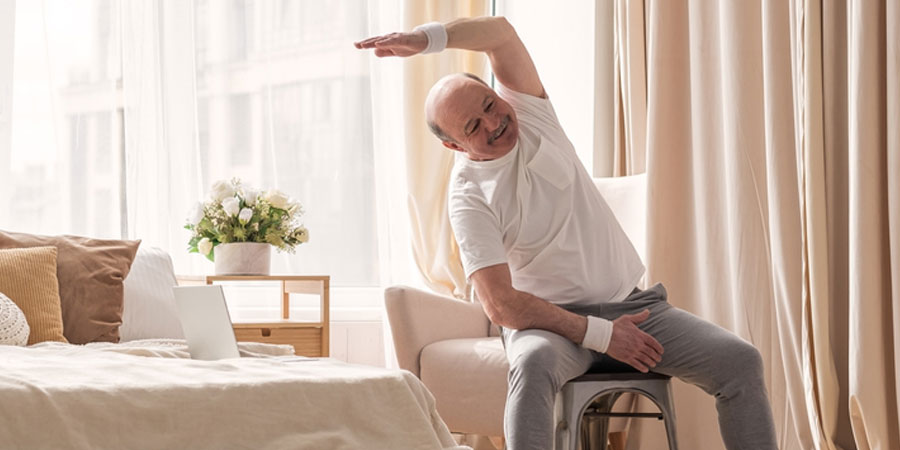
As you get older, it’s crucial to stay active to look after both your physical and mental health.
Regular activity can help your body to stay healthy, enable you to retain your independence, and reduce your risk of developing a range of conditions including heart disease, stroke, type 2 diabetes, some cancers, as well as depression, and dementia.
Being regularly active can also help you to manage your weight, strengthen your muscles and help to stay steady on your feet.
When you exercise, your body releases endorphins which can reduce your perception of pain and trigger a positive feeling in the body.
Exercise for both your body and your mind can improve your mental health by reducing anxiety, depression, and negative feelings, and expand your self-esteem and cognitive function.
But if you don’t know where to start or just need some encouragement or guidance, then check out our top 5 tips for staying active to help you look after your body and your mind.
1. Walking
Walking is considered one of the best forms of exercise, regardless of your age. It’s free, you don’t need any specialist equipment and most people are able to do it.
Aim to get out for a walk at least once a day and make it part of a regular routine, whether it’s on your own or with others.
Walk to a post-box, to the shops, or to your local park, or if you prefer to stay closer to home, enjoy a walk around your garden.
Local groups arrange organised walks for members to enjoy together in a group which can be an excellent way to stay active and socialise at the same time.
2. Embrace technology
The pandemic has encouraged many of us to become more familiar with new technology. Apps such as Zoom, Skype and FaceTime enabled families and friends to stay connected virtually when they were unable to physically be together.
Now that restrictions are relaxing, these apps and others such as social media can still provide invaluable opportunities to improve your mental health and sense of wellbeing.
They can be great tools to keep you connected and able to communicate more effectively with your family and friends, share memories, keep abreast of news in the community, and reach out to people from your past.
The online world also provides numerous e-learning opportunities whether it be physical exercise classes or activities to complement new or existing hobbies and interests. It can also be a source of information on how to access opportunities for physical exercise and social interactions within your local community.
Embracing these technologies can help keep your mind agile, improve memory and increase cognitive longevity, as well as build confidence.
3. Chair exercises
Chair exercises are a safe and effective way to benefit your physical and mental health.
Regularly undertaking a range of chair exercises can increase circulation, coordination, flexibility, strength, posture, and balance. This can reduce the risk of falls and increase your confidence and self-esteem.
Before you begin, make sure you choose a stable chair without wheels or arm rests. Sit with your feet flat on the floor and knees bent at right angles.
Follow professional advice and guidance included in programmes, such as sitting exercises from the NHS to do at home and simple exercises to do at home and chair based exercise classes in the community from Age UK.
4. Pets
Pet ownership has multiple benefits for people in later life. Owning an animal can encourage more activity and provide companionship, affection, and even conversation, alongside sense of purpose and responsibility; all contributing to a greater sense of well-being.
Pets in the home can also increase levels of ‘happy hormones’ in their owners, and can calm anxieties, lower stress levels, and reduce blood pressure.
Dog ownership, in particular, provides the opportunity to undertake regular physical activity outside in the fresh air and enables you to meet new people.
5. Puzzling and gaming
Regularly tacking puzzles and games can provide a great mental workout. Puzzles such as Sudoku or word searches, or, playing games like chess, bridge, or bingo can improve memory, concentration, cognitive skills, and sharpen logic and reasoning.
They can also provide the opportunity for social interaction and stimulation when playing with friends and family both at home and in the local community.
It’s never too late to start
It’s important to remember that it’s never too late to start making changes to the way you look after yourself, whatever age you are. If you have been inactive for a while, just start slowly and gradually build up.
Keeping both your mind and body active really can improve the length and quality of the life you live.
Our Live-In Carers support our clients in keeping active. They arrange and accompany clients taking part in physical activities within the community as well as providing companionship and regular social interaction inside the home to aid mental fitness. An Eximius Live-In Carer can make staying mentally and physically active in later life just a little bit easier.
If you or a loved one would like to understand more about whether live-in care might be the right fit for you, please get in contact, we’d love to help.

A spinal cord injury is a life-changing event. It affects every part of life, from work, hobbies, exercise, relationships, self-esteem and a person’s overall sense of self.
Recovery and adjusting to a new way of life is not an easy process to deal with. Research shows that the overall prevalence of depression in various spinal cord injury studies can be as high as 78%. Here we will discuss the importance of mental health care following a spinal cord injury.
How Spinal Cord Injuries Affect Mental Health
When a spinal injury occurs, it changes every part of life as you know it. Simple everyday tasks will need to be relearned. Depending on the severity of the injury, some tasks may no longer be able to be done independently. This can have a profound effect on a person’s mental health and cause feelings of depression. Life can feel overwhelming.
Relationships can change. People may treat the injured person differently. People may stare. These experiences can steadily erode self-esteem and identity, worsening mental health.
In addition to this, chronic pain, something many spinal cord injured people experience, is associated with worsening mental health over time.
How poor mental health can impact physical health
Many people are reluctant to admit they need mental health support and continue to suffer in silence. Yet, poor mental health can have a profound effect on physical recovery.
Poor mental health can:
- Reduce motivation to follow through with exercise and treatment regimens.
- Increase the likelihood of physical illness such as infections.
- Affect how a person behaves and their relationship with doctors and caregivers who are helping them with recovery.
Treatment options for poor mental health
There are many different ways to approach poor mental health for spinal cord injured people.
Treatment options can include:
- Medication – available and effective but not always necessary, especially not before trying some of the other options.
- Lifestyle changes – healthy diet, exercise, sleeping well, etc.
- Support groups – no one understands the struggles of life like other spinal cord injured people.
- Trying to keep doing activities that brought pleasure before, even if that means finding a new way of doing them.
- Psychotherapy – learn coping skills and identify problematic thought and behaviour patterns.
- Occupational and physical therapy – improving physical capabilities and relearning new ways to work around the injury can improve confidence greatly.
When to seek mental health care
With such a high likelihood of a spinal cord injured person developing some level of depression or anxiety following their injury, it makes sense to be proactive. It’s much harder to treat symptoms of depression than to try and prevent it in the first place. Maintaining a healthy lifestyle, staying socially engaged, remaining motivated to engage in physical rehabilitation and connecting with people in the same situation can all go a long way towards improving and maintaining the mental health of a spinal injury survivor.
Support at home
Eximius live-in care provides a range of care and support packages ranging from simple companionship to complex care needs.
If you or your loved one would benefit from support or companionship at home, please get in touch for an informal chat to see how we can help.
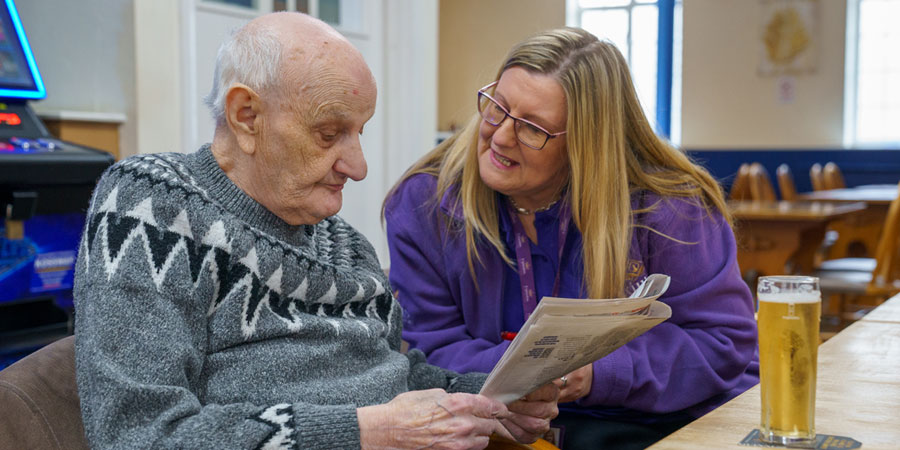
As a carer, you spend so much time focused on someone else that you can easily forget to take care of yourself.But if you get ill, then there’s no one to care for your loved one. So it’s even more important for you to protect some time each day for self-care habits.
This will help you have the energy and strength to continue doing the amazing job that you do. The stress and demands of being a carer actually increase your risk of developing health problems.
You may recognise some of these common ways you may not be taking care of yourself.
- Being regularly sleep deprived
- Poor eating habits
- Poor exercise routines
- Not resting when feeling unwell
- Not engaging in social situations or meeting friends
- Not taking care of your home
- Medical problems
While self-care might fall to the bottom of your very full list of priorities, not taking care of yourself can have severe consequences including depression, anxiety, and even alcohol dependency. Looking after your own wellbeing is important for yourself, but also for the person that is relying on you to care for them.
Here you will find some tips for simple changes you can make to ensure you look after yourself too.
5 top self-care tips for carers
Get support
Speak to an organisation or to your doctor and see what support is available in your area. Many people caring for a parent or a spouse believe that it is their responsibility and no one else’s, so asking for help can feel quite difficult. But everybody needs support and that helps you be the best carer you can be for your loved one.
Family and friends
Lean on them for emotional support and don’t say you’re okay if you’re not. Set up a group chat with family and friends so that you still feel in the loop and connected. Even when you can’t spend as much time with them as you’d like, you can still join in the conversation.
Take a break
Taking regular breaks to pursue a hobby or a catch up with friends can completely change the way you feel. Maybe you can get a short period of time away each day to take a long soak in a bubble bath or a walk in the fresh air. Or maybe you can take a longer period once or twice a week so you can go for lunch with friends or pursue a hobby you used to enjoy. This will make a world of difference to your mental health. It’s really important to make time for the things you enjoy in life.
Eat healthily and exercise
Our bodies crave the right fuel to keep us running well and we need movement in our lives to keep our mind and body healthy. A healthy, balanced diet with a range of fruit and vegetables each day, along with a brisk walk (or even 10 minutes around the garden) will do wonders for how you feel.
Be kind to yourself
Accept that it’s normal to have good days and bad days. Don’t feel guilty for needing time to yourself or for asking for help. You know you are doing all you can for the one you care about and taking care of yourself is an essential part of that.
Remember, self-care isn’t selfish. Your loved one needs you to be the healthiest version of yourself and as a carer you’re doing an incredible job. You deserve a little pampering. I hope these tips help.
If you feel you could benefit from some additional help at home we love to hear from you. Get in touch and we can have a chat about how we can support you.
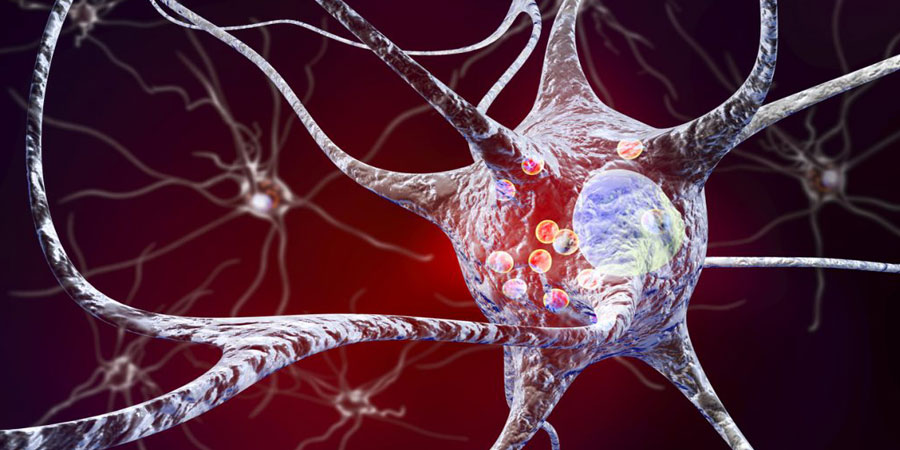
What is Parkinson’s
Parkinson’s is a progressive neurological condition. This means that it causes problems in the brain and gets worse over time. The number of people diagnosed with Parkinson’s in the UK is about 145,000.
It can become increasingly difficult to carry out everyday activities without help. Many people respond well to treatment and only experience mild to moderate disability, whereas the minority may not respond as well and can, in time, become more severely disabled. In such cases additional care may be required. Eximius provides exceptional live-in care for Parkinson’s client, helping them maintain as much independence as possible.
The symptoms of Parkinson’s disease usually develop gradually and are mild at first. There are many different symptoms associated with Parkinson’s disease. But the order in which these develop, and their severity is different for everyone. It is unlikely that a person with Parkinson’s disease would experience all or most of these.
The 3 main symptoms of Parkinson’s disease affect physical movement:
- Tremor – shaking, which usually begins in the hand or arm and is more likely to occur when the limb is relaxed and resting
- Slowness of movement (bradykinesia) – physical movements are much slower than normal, which can make everyday tasks difficult and result in a distinctive slow, shuffling walk with very small steps
- Muscle stiffness (rigidity) – stiffness and tension in the muscles, which can make it difficult to move around and make facial expressions, and can result in painful muscle cramps (dystonia)
Due to the changing nature of Parkinson’s, it can often be difficult for families. At Eximius, we work with loved ones to help ensure the correct care plan is produced for a client. The care plan is unique, individualised and facilities the smooth handover of a companion. Evidence has shown that receiving care in the comfort and safety of your own home plays an important role in improving overall health and wellbeing for the client; with benefits being proven to be greater than moving a client into a care home. Eximius provide a personalised approach to ensure our clients receive a high standard of care, companionship, and service. This is thoroughly important in making sure Parkinson clients continue to live a high-quality life, with dignity, control, and choice.
How our companions can help
Personal care
Often individuals with Parkinson’s have reduced mobility and are unable to carry out personal care themselves. Companions are Eximius can help assist clients with personal hygiene. We understand that this can be a sensitive matter and ensure that the client’s dignity is respected whilst helping with personal care.
Help them stay socially active
Our companions can help keep Parkinson’s clients stimulated by ensuring they keep in touch with friends, remain active and attend activities they enjoy and love. This is good for a client’s confidence, mental wellbeing and helps ensure they remain connected to the local community. Companions can also escort clients on daytrips to museums, concerts and on holiday. This helps ensure that our clients experience a quality life that they deserve.
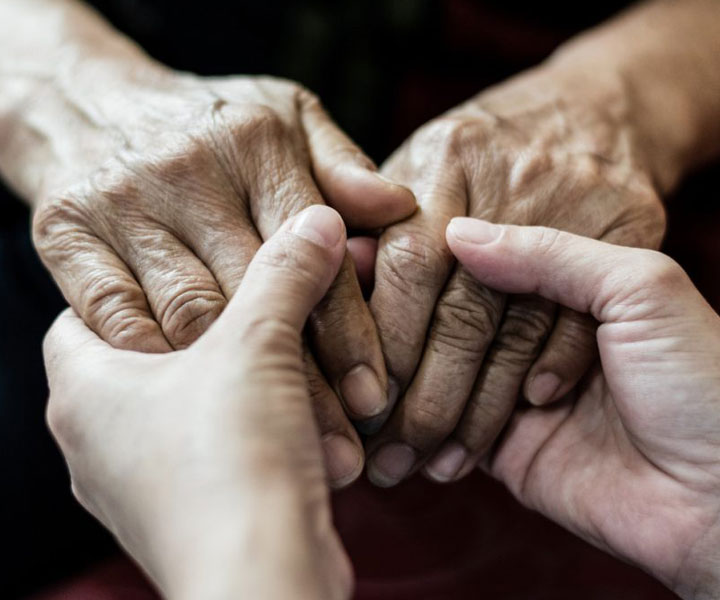
Additionally, companion’s at Eximius can play a vital role in ensuring clients carry out exercise. Evidence suggests that increasing exercise to 2.5 hours per week can be as important as medication in managing Parkinson’s symptoms. Regular exercise will improve strength, balance, posture, and flexibility. It can also help with sleep, tiredness, and the client’s mood and mental health.
Help with domestic tasks
Companions at Eximius are required to keep a client’s house clean. All rooms are regularly cleaned and vacuumed ensuring that the upkeep of the house is kept to a high standard. This can be reassuring to a client’s family knowing that there relative is in a safe and tidy environment.
Help care for the client’s much-loved pet
Companions at Eximius will happily support looking after client’s pets by feeding them and taking them on regular walks.
Eating and drinking
At Eximius companions help with the client’s food shopping and cook healthy well-balanced meals. Meal’s choices can be prepared based on the client’s desires and preferences. This ensures that the client regularly eats/drinks and receives essential vitamins. This is important in remaining healthy and keeping their immune systems strong helpful in fighting illness. Each companion is provided with an Eximius recipe book when going into a placement. The recipe book is filled with tasty healthy meals helpful in ensuring clients receive a range of delicious meals.
Companionship
Individual with Parkinson’s can become frustrated, depressed and there mental wellbeing can deteriorate. Companions at Eximius can provide excellent emotional support and assistance during this difficult period. Our companions are carefully selected by our recruitment manager, ensuring that all companions employed by the company are of an outstanding care standard. Companions are perfectly matched to a client to ensure they share similar interests and hobbies. This enables a client to continue living an interesting and stimulating life.
Safe mobility
An individual’s house often has to be adapted to help ensure safe movement and mobility. Companions at Eximius ensure that a client’s house is the perfect fit for them. They will contact an occupational therapist who will provide expert guidance and advice as to what equipment and adaptations are required. These are then fitted into a client’s house hassle free. Furthermore, collaborative health and social care is essential and people with the condition will often need the expert professional help of a multidisciplinary team. The multidisciplinary team can include a person’s specialist, Parkinson’s nurse, physiotherapist, occupational therapist, and speech and language therapist. Companions at Eximius play an important role in ensuring this is organised, appointments are scheduled, and doctors are attended on time. This takes all pressure of the client’s family and enables them to continue living a life knowing there loved one is receiving a high standard of care.
Reasons to choose Eximius
Consistency
We believe in keeping the same carer in place for as long as possible. This means a strong bond can develop between the carer and the client. The carer can understand the clients likes and dislikes and build a level of trust. This is especially important for clients with Parkinsons whose condition may vary from day-to-day. Having the same carer means they will be able to adjust better to their clients needs.
Training and experience
Our carers have years of experience in all sorts of conditions. We would place a carer with experience in with a client with Parkinsons and ensure all training was up to date. They are also supported by our clinical lead and care team with over 60 years experience.
Choosing the correct care is an important decision and our experienced team are here to help every step of the way. Please do not hesitate to contact us, we are more than happy to help.
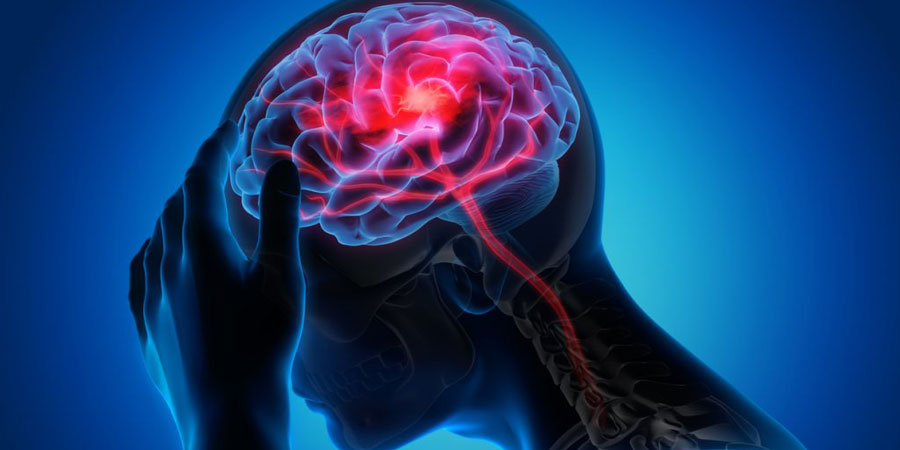
What is a stroke?
A stroke is a serious life-threatening medical condition that happens when the blood supply to part of the brain is cut off. The resulting lack of oxygen to the brain causes damage that affects how the body functions.
There are more than 100,000 strokes in the UK each year. But no two strokes are the same, which means there is no set pattern for recovering from one. It also depends on the type of stroke you have and the stroke services that are available in your area.
How well you recover and how long it takes is also different for everyone but making sure that you receive care quickly will give you the best possible chance of making a good recovery.
The signs and symptoms of a stroke vary from person to person, but usually begin suddenly. The main stroke symptoms include:
- Face – the face may have dropped on 1 side, the person may not be able to smile, or their mouth or eye may have drooped.
- Arms – the person may not be able to lift both arms and keep them there because of weakness or numbness in 1 arm.
- Speech – their speech may be slurred or garbled, or the person may not be able to talk at all despite appearing to be awake; they may also have problems understanding what you are saying to them.
How we can help?
At Eximius we believe individuals recovering from a stroke should be cared and supported in a familiar setting surrounded by their loved ones. Our companions can play a vital role in helping clients maintain a positive morale crucial in maintaining good health and wellbeing. Additionally, companions can help clients:
- Do their physiotherapy exercises in between their sessions with the physiotherapist
- Provide emotional support and reassurance that their condition will improve with time
- Help motivate them to reach their long-term goals
- Adapt to any needs they may have, such as speaking slowly if they have communication difficulties
Companions at Eximius caring for stroke clients have recalled several success stories. Many stroke clients have been told by medical professionals of the unlikelihood of mobility being regained, however have been able to recover beyond expectations.
Eximius puts this somewhat down to our extremely hard-working companions who consistently encourage clients to carry out physiotherapy exercises, provide clients with healthy nutritional meals and give companionship.
Furthermore, our companions can help with
Managing and administering medications
All companions at Eximius are fully trained and qualified in the administration of medication. We ensure that companions understand and aware of client’s medication usage before they go into placement. This helps ensure a smooth and accurate handover. Additionally, companions are required to document the administration of medication on a secure care electronic system. This helps companions monitor intake and let a clients family know that their loved one is being looked after. This can be extremely reassuring. Companions will also ensure that repeat prescriptions are made and will collect medication from the pharmacy. This takes all pressure of the client’s family.
Personal care
Often individuals recovering from a stroke have reduced mobility and are unable to carry out personal care themselves. Companions are Eximius can help assist clients with personal hygiene. We understand that this can be a sensitive matter and ensure that the client’s dignity is respected whilst helping with personal care.

Help them stay socially active
Our companions can help keep stroke clients stimulated by ensuring they keep in touch with friends, remain active and attend activities they enjoy and love. This is good for a client’s confidence, mental wellbeing and helps ensure they remain connected to the local community. Companions can also escort clients on daytrips to museums, concerts and on holiday. This helps ensure that our clients experience a quality life that they deserve.
Help with domestic tasks
Companions at Eximius are required to keep a client’s house clean. All rooms are regularly cleaned and vacuumed ensuring that the upkeep of the house is kept to a high standard. This can be reassuring to a client’s family knowing that there relative is in a safe and tidy environment.
Help care for the client’s much-loved pet
Companions at Eximius will happily support looking after client’s pets by feeding them and taking them on regular walks.
Eating and drinking
At Eximius companions help with the client’s food shopping and cook healthy well-balanced meals. Meal’s choices can be prepared based on the client’s desires and preferences. This ensures that the client regularly eats/drinks and receives essential vitamins. This is important in remaining healthy and keeping their immune systems strong helpful in fighting illness. Each companion is provided with an Eximius recipe book when going into a placement. The recipe book is filled with tasty healthy meals helpful in ensuring clients receive a range of delicious meals.
Companionship
Following a stroke an individual can become frustrated and there mental wellbeing can deteriorate. Companions at Eximius can provide excellent emotional support and assistance during this difficult period. Our companions are carefully selected by our recruitment manager, ensuring that all companions employed by the company are of an outstanding care standard. Companions are perfectly matched to a client to ensure they share similar interests and hobbies. This enables a client to continue living an interesting and stimulating life.
Safe mobility
After a stroke, an individual’s house often has to be adapted to help ensure safe movement and mobility. Companions at Eximius ensure that a client’s house is the perfect fit for them. They will contact an occupational therapist who will provide expert guidance and advice as to what equipment and adaptations are required. These are then fitted into a client’s house hassle free
Reasons to choose Eximius
Consistency
We believe in keeping the same carer in place for as long as possible. This means a strong bond can develop between the carer and the client. The carer can understand the clients likes and dislikes, what might trigger them and build a level of trust.
Knowledge and experience
Our clinical lead can liaise with health professionals to ensure the correct rehabilitation programme is in place, and that carers are trained correctly to carry it out with clients.
Flexibility
Because we are a small owner run company, we are able to be very fast and flexible with decision making. We are very involved with all our clients, so as a client’s needs change, we adapt and change with them.
Choosing the correct care is an important decision and our experienced team are here to help every step of the way. Please do not hesitate to contact us, we are more than happy to help.
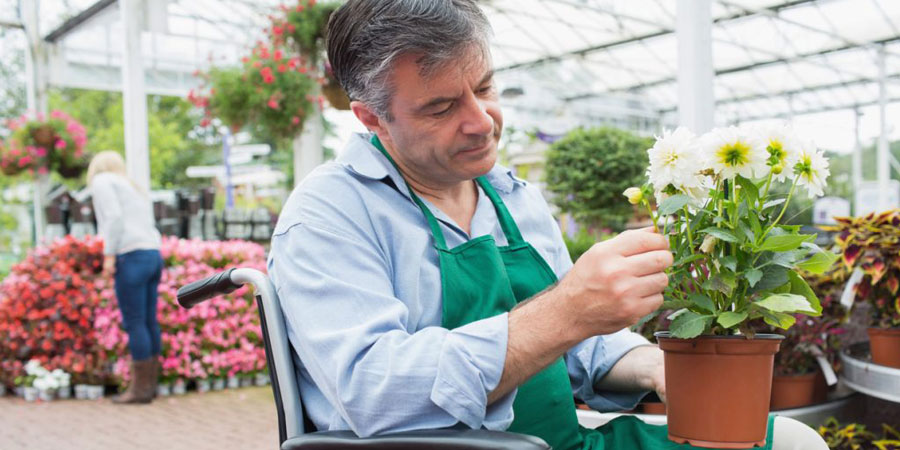
What is Multiple Sclerosis?
Multiple Sclerosis (MS) is a condition that can affect the brain and spinal cord. In MS, the coating that protects your nerves (myelin) is damaged. More than 130,000 people in the UK have MS with individuals most likely to find out they have the condition in their thirties, forties, and fifties. But the first signs of MS often start years earlier. Many people notice their first symptoms years before they get their diagnosis. MS affects almost three times as many women as men.
MS has many symptoms, but not everyone will experience all of them. Some of the most common symptoms of multiple sclerosis include:
- Eye problems
- Numbness or tingling feelings (sometimes a bit like pins and needles)
- Fatigue
- Difficulty walking
- Problems controlling the bladder
- Muscle stiffness and spasms
- Problems with thinking, learning and planning
- Problems with balance and co-ordination
MS symptoms can come and go and change over time depending on the type of MS the client has. They can be mild, or more severe. However, throughout a client’s journey with MS, it is important they feel supported and maintain as much independence as possible. Eximius can play a crucial role in ensuring this happens. Eximius provide high quality personalised care to help clients receive the benefits of being cared for within their own home compared to residential or care home settings.
These benefits include improved wellbeing and overall health, maintaining existing routines and remaining connected with loved ones. Although there is no cure for MS, it is essential to adopt positive lifestyle habits to help slow the speed of the disease progression. Companions at Eximius work around the clock to ensure clients are satisfied, maintain healthy lifestyle habits, and ensure clients experience a quality of life they deserve.
How our companions can help
Personal care
Often individuals with MS have reduced mobility and are unable to carry out personal care themselves. Companions are Eximius can help assist clients with personal hygiene. We understand that this can be a sensitive matter and ensure that the client’s dignity is respected whilst helping with personal care.
Help them stay socially active
Our companions can help keep MS clients stimulated by ensuring they keep in touch with friends, remain active and attend activities they enjoy and love. This is good for a client’s confidence, mental wellbeing and helps ensure they remain connected to the local community. Companions can also escort clients on daytrips to museums, concerts and on holiday. This helps ensure that our clients experience a quality life that they deserve.
Additionally, companion’s at Eximius can play a vital role in ensuring clients carry out exercise. Regular, moderate exercise is now known to be an important part of maintaining good health and wellbeing for people with MS. There is evidence that it can help with many MS symptoms, and with general quality of life.
Moderate exercise has been shown to improve strength, mobility and bowel and bladder function for people with mild to moderate MS. Exercise is also helpful in helping maintain a healthy weight. This reduces your chances of acquiring co-morbidities, and can also reduce the impact of some MS symptoms, such as pain and fatigue. Exercise activities include swimming, arm cycling, sailing and boating, bowling, golf and Archery. Eximius companions can drive, provide company and organise exercise classes for clients.
Help with domestic tasks
Companions at Eximius are required to keep a client’s house clean. All rooms are regularly cleaned and vacuumed ensuring that the upkeep of the house is kept to a high standard. This can be reassuring to a client’s family knowing that there relative is in a safe and tidy environment.
Help care for the client’s much-loved pet
Companions at Eximius will happily support looking after client’s pets by feeding them and taking them on regular walks.
Eating and drinking
At Eximius companions help with the client’s food shopping and cook healthy well-balanced meals. Meal’s choices can be prepared based on the client’s desires and preferences. This ensures that the client regularly eats/drinks and receives essential vitamins. This is important in remaining healthy and keeping their immune systems strong helpful in fighting illness. MS is an autoimmune disease and therefore having a diet rich in fruits and vegetables is key in preventing other health complications such as high blood pressure and diabetes. Each companion is provided with an Eximius recipe book when going into a placement. The recipe book is filled with tasty healthy meals helpful in ensuring clients receive a range of delicious meals.
Major claims have been made regarding curing or significantly alleviating MS through specific diets such as the swank diet, palaeolithic diet and the Mediterranean diet. Some people are very passionate supporters of a specific diet, but none of these diets have been shown to work for everyone who tries them. If a client wants to try one of these diets, Eximius companions can assist with this.
Companionship
Individual with MS can become frustrated, depressed and there mental wellbeing can deteriorate. Companions at Eximius can provide excellent emotional support and assistance during this difficult period. Our companions are carefully selected by our recruitment manager, ensuring that all companions employed by the company are of an outstanding care standard. Companions are perfectly matched to a client to ensure they share similar interests and hobbies. This enables a client to continue living an interesting and stimulating life.
Safe mobility
An individual’s house often has to be adapted to help ensure safe movement and mobility. Companions at Eximius ensure that a client’s house is the perfect fit for them. They will contact an occupational therapist who will provide expert guidance and advice as to what equipment and adaptations are required. These are then fitted into a client’s house hassle free.
Furthermore, collaborative health and social care is essential and people with the condition will often need the expert professional help of a multidisciplinary team. The multidisciplinary team can include a person’s specialist, physiotherapist, and occupational therapist.
Eximius play an important role in ensuring this is organised, appointments are scheduled, and doctors are attended on time. This takes all pressure of the client’s family and enables them to continue living a life knowing there loved one is receiving a high standard of care.
Managing and administering medications
All companions at Eximius are fully trained and qualified in the administration of medication. We ensure that companions understand and aware of client’s medication usage before they go into placement. This helps ensure a smooth and accurate handover. Additionally, companions are required to document the administration of medication on a secure care electronic system. This helps companions monitor intake and let a clients family know that their loved one is being looked after. This can be extremely reassuring. Companions will also ensure that repeat prescriptions are made and will collect medication from the pharmacy. This takes all pressure of the client’s family.
Reasons to choose Eximius
Consistency
We believe in keeping the same carer in place for as long as possible. This means a strong bond can develop between the carer and the client. The carer can understand the clients likes and dislikes and build a level of trust. This is especially important for clients with MS whose condition may vary from day-to-day. Having the same carer means they will be able to adjust better to their clients needs.
Training and experience
Our carers have years of experience in all sorts of conditions. We would place a carer with experience in with a client with MS and ensure all training was up to date. They are also supported by our clinical lead and care team with over 60 years experience.
Choosing the correct care is an important decision and our experienced team are here to help every step of the way. Please do not hesitate to contact us, we are more than happy to help.
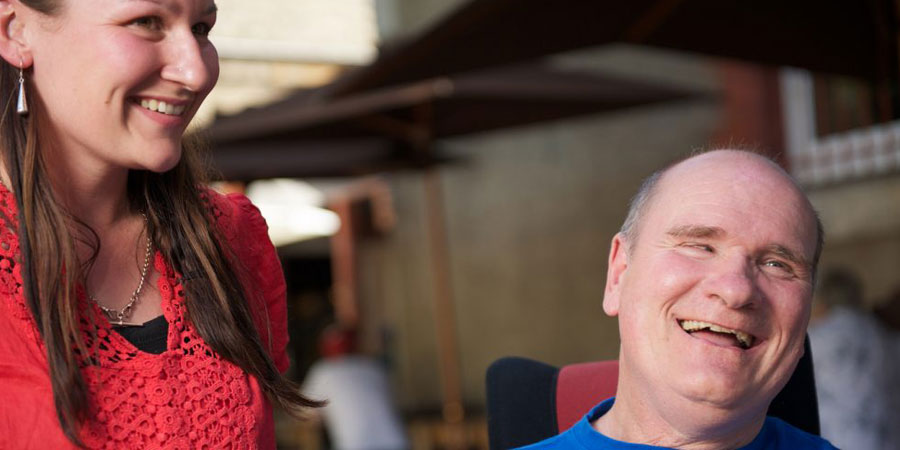
What is brain injury?
Brain injury takes many forms and has many causes and levels of severity.
Any brain injury that has occurred since birth is known as an acquired brain injury (ABI). Other common forms of brain injury include:
- Traumatic brain injury (TBI) – commonly occurs due to road traffic collisions, falls, assaults, etc. TBIs are generally categorised into minor, moderate and severe injuries.
- Stroke – occurs when either the blood supply in the brain is blocked by a blood clot (ischaemic stroke) or when a blood vessel in the brain bursts (haemorrhagic stroke) causing a bleed on the brain (haemorrhage).
- Encephalitis – inflammation of the brain caused by either a viral infection or through the immune system attacking the brain in error.
- Meningitis – inflammation of the membranes that surround the brain (meninges) caused by bacterial or viral infections.
Hypoxic/anoxic injury – caused by lack of oxygen to the brain and can happen as a result of a heart attack, near drowning, carbon monoxide poisoning, etc. - Brain tumour – an abnormal growth of cells in the brain.
- Hydrocephalus – a build up of cerebrospinal fluid (CSF) in the brain. This often occurs in babies as a result of birth defects or infection and can also occur in adults due to traumatic brain injury, stroke, brain tumour, or, on rare occasions, spontaneously, with no known cause.
There were 348,453 UK admissions to hospital with acquired brain injury in 2016-17. That is 531 admissions per 100,000 of the population. Men are 1.5 times more likely than women to be admitted for head injury. In 2016-17, there were 132,199 admissions for stroke. That is an increase of 10% since 2005-6 and equates to one every four minutes.
How long and how arduous the road to recovery is for brain injured individuals varies from case to case. Receiving the correct care throughout this journey is crucial. Evidence has shown that the type of care selected plays an important role in seeing benefits in wellbeing and health, with live-in care showing the greatest benefits.
Eximius provides outstanding live-in care to help ensure that injured individuals maintain as much independence, control, and a high-quality life. It can be a worrying and difficult time for a family after a loved one experiences a brain injury. However, at Eximius we make this time a little easier by providing a personalised and flexible approach to ensure a loved one is cared for correctly. Companions at Eximius go above and beyond to ensure clients and families are satisfied.
How our companions can help:
Managing and administering medications
Medications may be used to manage some of the effects of a brain injury. Medication to limit secondary damage may also need to be administered. All companions at Eximius are fully trained and qualified in the administration of medication. We ensure that companions understand and aware of client’s medication usage before they go into placement. This helps ensure a smooth and accurate handover. Additionally, companions are required to document the administration of medication on a secure care electronic system. This helps companions monitor intake and let a clients family know that their loved one is being looked after. This can be extremely reassuring. Companions will also ensure that repeat prescriptions are made and will collect medication from the pharmacy. This takes all pressure of the client’s family.
Personal care
Often individuals with a brain injury have reduced mobility and are unable to carry out personal care themselves. Companions are Eximius can help assist clients with personal hygiene. We understand that this can be a sensitive matter and ensure that the client’s dignity is respected whilst helping with personal care.
Help them stay socially active
Our companions can help keep brain injury clients stimulated by ensuring they keep in touch with friends, remain active and attend activities they enjoy and love. This is good for a client’s confidence, mental wellbeing and helps ensure they remain connected to the local community. Companions can also escort clients on daytrips to museums, concerts and on holiday. This helps ensure that our clients experience a quality life that they deserve.
Additionally, companion’s at Eximius can play a vital role in ensuring clients carry out exercise and rehabilitation. Activity is the best way to keep a client’s body healthy, improve mental health and to avoid complications. Research has demonstrated the benefits of activity in maintaining health and function as well as recovery.

Most people who have had a significant brain injury will require rehabilitation. They may need to relearn basic skills, such as walking or talking. Companion’s can ensure that daily rehabilitation takes place.
Help with domestic tasks
Companions at Eximius are required to keep a client’s house clean. All rooms are regularly cleaned and vacuumed ensuring that the upkeep of the house is kept to a high standard. This can be reassuring to a client’s family knowing that there relative is in a safe and tidy environment.
Help care for the client’s much loved pet
Companions at Eximius will happily support looking after client’s pets by feeding them and taking them on regular walks.
Eating and drinking
At Eximius companions help with the client’s food shopping and cook healthy well-balanced meals. Meal’s choices can be prepared based on the client’s desires and preferences. This ensures that the client regularly eats/drinks and receives essential vitamins. This is important in remaining healthy and keeping their immune systems strong helpful in fighting illness. Each companion is provided with an Eximius recipe book when going into a placement. The recipe book is filled with tasty healthy meals helpful in ensuring clients receive a range of delicious meals.
Companionship
Individual with a brain injury can become frustrated, depressed and there mental wellbeing can deteriorate. Companions at Eximius can provide excellent emotional support and assistance during this difficult period. Our companions are carefully selected by our recruitment manager, ensuring that all companions employed by the company are of an outstanding care standard. Companions are perfectly matched to a client to ensure they share similar interests and hobbies. This enables a client to continue living an interesting and stimulating life.
Safe mobility
Eximius like to keep companions in a placement for as long as possible to enable the client and companion to develop a relationship. This is extremely important in the companion picking up and noticing behavioural changes in the client. Seizures can develop after a brain injury and occur several months, or even years after the injury occurred. Having a companion that notices alterations in the client mood is important. Additionally, keeping a companion in a placement for a while helps maintain structure. Maintaining a structured environment is essential for providing care to someone who’s suffered a brain injury. The structure will minimize potential issues by providing the individual a consistent, dependable way of life.
An individual’s house often has to be adapted to help ensure safe movement and mobility. Companions at Eximius ensure that a client’s house is the perfect fit for them. They will contact an occupational therapist who will provide expert guidance and advice as to what equipment and adaptations are required. These are then fitted into a client’s house hassle free. Furthermore, collaborative health and social care is often essential and people with a brain injury will often need the expert professional help of a multidisciplinary team. The multidisciplinary team can include a person’s specialist, physiotherapist, and occupational therapist. Eximius play an important role in ensuring this is organised, appointments are scheduled, and doctors are attended on time. This takes all pressure of the client’s family and enables them to continue living a life knowing there loved one is receiving a high standard of care.
Reasons to choose Eximius
Consistency
We believe in keeping the same carer in place for as long as possible. This means a strong bond can develop between the carer and the client. The carer can understand the clients likes and dislikes, what might trigger them and build a level of trust. This is especially important with brain injury where communication is critical. Having the same carer in place means they get to know a client’s traits and build knowledge of methods of communication and their meaning.
Knowledge and experience
We have cared for many clients with brain injury and with their case managers and health professional teams. We understand the needs and particular challenges. All our carers are trained in the specific skills to care for our clients and liaise with our clinical lead for support.
Flexibility and creativity
Because we are a small owner run company, we are able to be very fast and flexible with decision making. We can be creative around solutions for particular situations and less rigid in our approach. This has meant in the past that where other companies have struggled with housing or family dynamics, we are able to come up with innovative solutions.
Choosing the correct care is an important decision and our experienced team are here to help every step of the way. Please do not hesitate to contact us, we are more than happy to help.

If you or a loved one are facing the challenges of Parkinson’s, you know how essential it is to find effective ways to manage the condition and improve overall well-being.
That’s where High-Intensity Interval Training (HIIT) comes in – a game-changing exercise approach that can potentially bring hope to those living with Parkinson’s.
Understanding Parkinson’s Disease
Parkinson’s is a neurological disorder that can affect movement, balance, and coordination. Daily activities that once seemed effortless may become more challenging over time. While current management strategies are helpful, we’re here to explore how HIIT can be a valuable addition to the toolkit for managing Parkinson’s.
What is HIIT?
Now you might be wondering, “What exactly is this HIIT thing?” High-Intensity Interval Training is a form of exercise that combines short bursts of intense activity with brief periods of rest or lower-intensity exercise. It’s a powerful workout technique that has gained popularity for its effectiveness in improving overall health.
The Power of Dopamine and Its Connection to Parkinson’s and HIIT
One of the key players in Parkinson’s disease is dopamine – a vital neurotransmitter responsible for coordinating movement and regulating emotions. In individuals with Parkinson’s, there is a gradual decline in dopamine production due to the loss of dopamine-producing neurons in the brain.
Here’s where the connection to HIIT becomes particularly intriguing. Research has indicated that high-intensity exercise, like HIIT, can stimulate dopamine release in the brain. This surge of dopamine may help compensate for the deficiency caused by Parkinson’s, temporarily improving motor function and reducing symptoms.
Benefits of HIIT for People with Parkinson’s
Engaging in HIIT regularly may promote the creation of new dopamine receptors in the brain, enhancing dopamine sensitivity and improving the brain’s ability to use the available dopamine more efficiently. As a result, individuals with Parkinson’s may experience temporary relief from motor symptoms and potentially see long-term benefits through consistent HIIT practice.
Enhancing Motor Skills and Coordination
Studies have shown that HIIT can positively impact gait and balance, which are often affected by Parkinson’s disease. HIIT exercises can help improve fine and gross motor skills, making it easier to perform day-to-day activities with greater confidence.
Boosting Cognitive Function
HIIT may stimulate neuroplasticity in individuals with Parkinson’s. This means that the brain’s ability to reorganise and adapt might be enhanced through HIIT, potentially leading to improvements in cognitive function.
Reducing Rigidity and Bradykinesia
Many individuals with Parkinson’s experience stiffness and slowness of movement. Research suggests that HIIT could be a promising way to address these symptoms, offering a potential alternative to traditional exercise approaches.
Managing Depression and Anxiety
HIIT can do more than just work up a sweat; it also helps release those feel-good endorphins that can lift your spirits and alleviate stress. For those with Parkinson’s, this could be a valuable tool in managing the mental health challenges that may arise.
Enhancing Overall Quality of Life
The ultimate goal is to improve the overall quality of life for those with Parkinson’s. HIIT has the potential to promote independence, self-confidence, and a greater sense of well-being.
Safety Considerations
As with any exercise routine, it’s essential to prioritise safety. If you’re considering starting HIIT, consult your healthcare professional to ensure it suits your needs. Additionally, always listen to your body and know when to take a break or modify the exercises
Take a look at the short video. The “King of HIIT”, Joe Wicks, speaks to Neuro-physiologist Milly Khan from Guys and St Thomas’ Hospital to talk about the benefits her patients are seeing from exercise and specifically HIIT.
Incorporating HIIT into Daily Life
Now that we’ve piqued your interest, you might wonder how to start with HIIT. Developing a personalised routine is vital; setting realistic goals and tracking your progress is crucial. Remember, every journey is unique, so find the exercises that suit you best and enjoy the process!
Ready to jump in and try a HIIT workout designed for individuals with Parkinson’s? Here is a 20 Minute HIIT Workout for Parkinson’s with Joe Wicks.
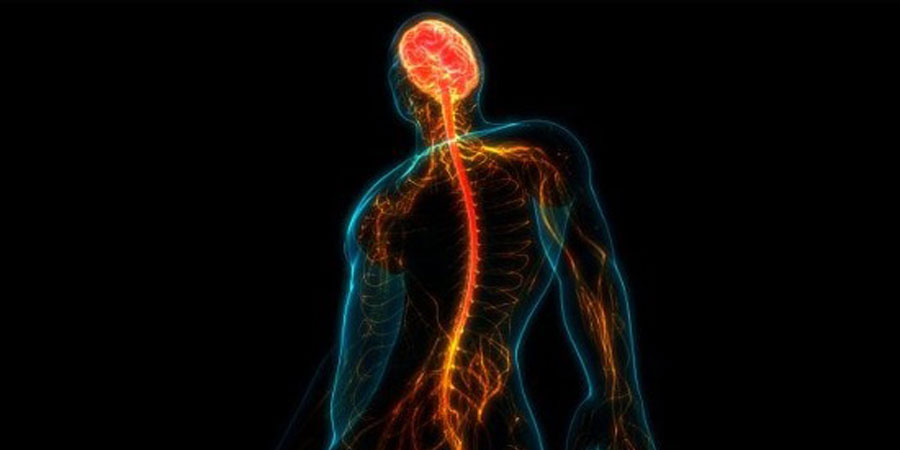
What is a spinal injury?
A spinal cord injury is damage to the spinal cord. It’s an extremely serious type of physical trauma that’s likely to have a lasting and significant impact on most aspects of daily life.
The spinal cord is a bundle of nerves and other tissue that the vertebrae of the spine contains and protects. The vertebrae are the bones stacked on top of each other that make up the spine.
The spine contains many nerves, and extends from the brain’s base down the back, ending close to the buttocks. The spinal cord is responsible for sending messages from the brain to all parts of the body. It also sends messages from the body to the brain.
If the spinal cord sustains an injury, some or all of these impulses may not be able to “get through.” The injury may be classed as complete or incomplete. The result is a partial or complete of sensation and mobility below the injury. A spinal cord injury closer to the neck will typically cause paralysis throughout a larger part of the body than one in the lower back area.
There are approximately 2,500 new cases of Spinal Cord Injury from trauma in the UK each year and the number of people living with a spinal injury in the UK is approximately 50,000.
what is spinal injury live-in care?
Live-in care for individuals with spinal injuries offers support in enhancing daily life, restoring independence, and managing daily activities. This care is typically provided by an experienced agency or specialised provider knowledgeable in spinal injury care.
Spinal cord injuries of any kind may result in one or more of the following signs and symptoms:
- Loss of movement
- Loss or altered sensation, including the ability to feel heat, cold and touch
- Loss of bowel or bladder control
- Exaggerated reflex activities or spasms
- Changes in sexual function, sexual sensitivity and fertility
- Pain or an intense stinging sensation caused by damage to the nerve fibres in your spinal cord
- Difficulty breathing, coughing or clearing secretions from your lungs
- In many cases after a spinal cord injury, individuals will require support and should be provided with choice about the type of care they receive whether that is in a care home, residential or live-in care.
In many cases individuals are unaware of live-in care. Receiving compassionate care in the safety and familiarity of your own home following a spinal cord injury has far reaching benefits, in terms of improving wellbeing, overall health and quality of life.
At Eximius we can help by providing highly trained companions to ensure clients can continue living in their own home, surrounded by loved ones.
We take a flexible and personalised approach to care helping ensure clients retain choice, control in life, and maintain as much independence as possible. Companions at Eximius go above and beyond to ensure clients and families are satisfied.
How our companions can help
Managing and administering medications
Medications may be used to manage some of the effects of spinal cord injury. These include medications to control pain and muscle spasticity, as well as medications that can improve bladder control, bowel control and sexual functioning.
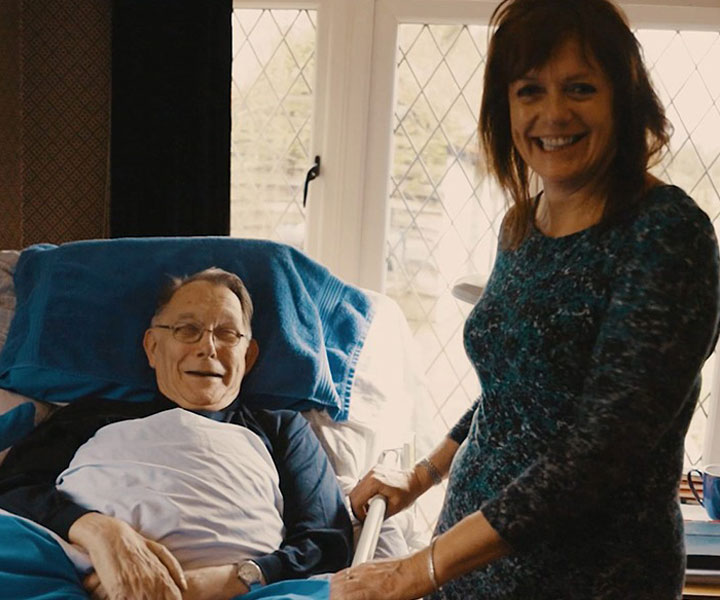
All companions at Eximius are fully trained and qualified in the administration of medication. We ensure that companions understand and are aware of the client’s medication usage before they go into placement. This helps ensure a smooth and accurate handover.
Additionally, companions are required to document the administration of medication on a secure care electronic system. This helps companions monitor intake and let a client’s family know that their loved one is being looked after.
This can be extremely reassuring. Companions will also ensure that repeat prescriptions are made and will collect medication from the pharmacy. This takes all pressure off the client’s family.
Personal care
Often individuals with a spinal cord injury have reduced mobility and are unable to carry out personal care themselves. Companions at Eximius can help assist clients with personal hygiene. We understand that this can be a sensitive matter and ensure that the client’s dignity is respected whilst helping with personal care.
Help them stay socially active
Our companions can help keep spinal injury clients stimulated by ensuring they keep in touch with friends, remain active and attend activities they enjoy and love. This is good for a client’s confidence, mental wellbeing and helps ensure they remain connected to the local community. Companions can also escort clients on daytrips to museums, concerts and on holiday. This helps ensure that our clients experience a quality life that they deserve.
Additionally, companion’s at Eximius can play a vital role in ensuring clients carry out exercise. Activity is the best way to keep a client’s body healthy, improve mental health and to avoid complications.
Research has demonstrated the benefits of activity in maintaining health and function as well as recovery. Companions at Eximius can help clients perform a range of motion exercises to help keep joints supple and assist with bowel, bladder, and skin care.
Movement of the legs and trunk keep the bowels moving and the urine in the bladder stirred, thereby reducing the client’s chances of infection. Moving the body by performing pressure releases, keeps small blood vessels from collapsing or clotting.
Help with domestic tasks
Companions at Eximius are required to keep a client’s house clean. All rooms are regularly cleaned and vacuumed ensuring that the upkeep of the house is kept to a high standard. This can be reassuring to a client’s family knowing that their relative is in a safe and tidy environment.
Help care for the client’s much-loved pet
Companions at Eximius will happily support looking after client’s pets by feeding them and taking them on regular walks.
Eating and drinking
At Eximius companions help with the client’s food shopping and cook healthy well-balanced meals. Meal choices can be prepared based on the client’s desires and preferences. This ensures that the client regularly eats/drinks and receives essential vitamins. This is important in remaining healthy and keeping their immune systems strong, which is helpful in fighting illness. Each companion is provided with an Eximius recipe book when going into a placement. The recipe book is filled with tasty healthy meals, which help ensure clients receive a range of delicious meals.
Companionship
Individuals with a spinal cord injury can become frustrated, depressed and their mental wellbeing can deteriorate. Companions at Eximius can provide excellent emotional support and assistance during this difficult period. Our companions are carefully selected by our recruitment manager, ensuring that all companions employed by the company are of an outstanding care standard. Companions are perfectly matched to a client to ensure they share similar interests and hobbies. This enables a client to continue living an interesting and stimulating life.
Safe mobility
An individual’s house often has to be adapted to help ensure safe movement and mobility. Companions at Eximius ensure that a client’s house is the perfect fit for them. They will contact an occupational therapist who will provide expert guidance and advice on what equipment and adaptations are required. These are then fitted into a client’s house, hassle free.
Furthermore, collaborative health and social care is essential and people with a spinal cord condition will often need the expert professional help of a multidisciplinary team. The multidisciplinary team can include a person’s specialist, physiotherapist, and occupational therapist.
Eximius play an important role in ensuring this is organised, appointments are scheduled, and doctors are attended on time. This takes all the pressure away from the client’s family and enables them to continue living a life, knowing their loved one is receiving a high standard of care.
Reasons to choose Eximius
Experience
Eximius have specialised in clients with spinal injuries since we started. We understand not only the physical concerns but also the emotional impact from a spinal injury. We have a team of carers who have extensive experience in this area and are able to support our clients and their needs. We also have a clinical lead and connections with The Spinal Injury Association (SIA) for specific requirements.
Training
Our carers are trained in all aspects of care for spinal injuries, including bowel management, AD, respiratory care and tissue viability. We use external trainers from Stoke Mandeville hospital and have our own bespoke internal training.
Consistency
We like to ensure the same carers are assigned to a client and always aim to have one primary carer. This helps to build trust and knowledge of a client’s needs.
Choosing the right care is an important decision and our experienced team are here to help every step of the way. Please do not hesitate to get in touch, we are more than happy to help.